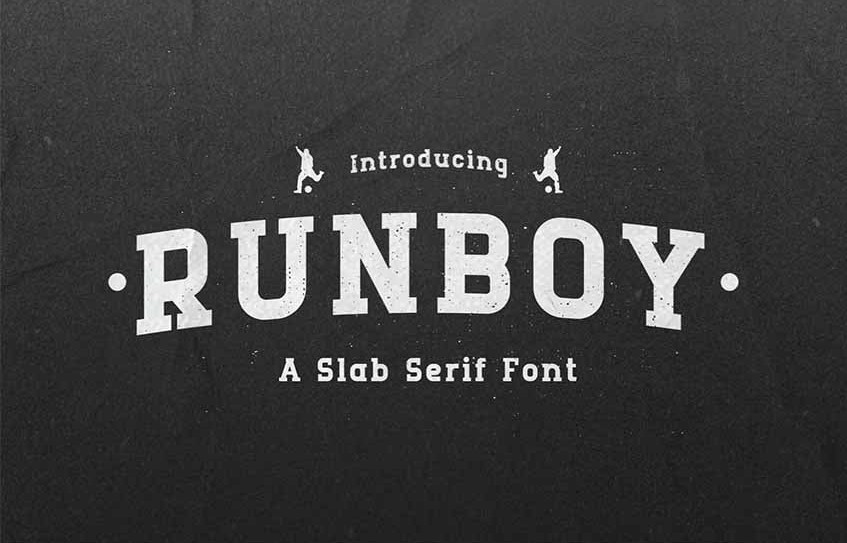Best Selling Products
Hurtful Words for Designers: Protect Your Creative Soul
Nội dung
- 1. Negative Sayings That Hurt Designers' Souls
- 1.1. This design looks simple, nothing special
- 1.2. Anyone can do this
- 1.3. "This isn't good, try again"
- 1.4. "Just design like this sample"
- 2. Why Do These Sayings Have a Negative Impact on Designer Psychology?
- 2.1. Creativity is the most important part of the design profession.
- 2.2. Lack of respect for the profession
- 2.3. Loss of self-confidence
- 3. How to Get Over Hurtful Words
- 3.1. Don't let those words define your worth.
- 3.2. Seek constructive feedback
- 3.3. Don't Let Words Define Your Self-Worth
- 3.4. Keep Calm and Handle Wisely
- 3.5. Find Out the Cause
- 3.6 Learn to Forgive
- 3.7. Focus on the Positive
- 3.8. Practice emotional management skills
- 3.8. Share your feelings with colleagues who understand and support you
- 4. How to Create a Work Environment That Respects and Supports Designers?
- 4.1. Respond respectfully and constructively
- 4.2. Ensure that the design is properly perceived
- 5. Conclusion
Negative statements, intentionally or unintentionally, can hurt the psyche of designers. Discover what hurtful statements are and how to overcome them in this article.

Designers, no matter how talented they are, sometimes have to deal with hurtful or unintentional words. These words can come from colleagues, clients, or even loved ones. Identifying and confronting negative words not only helps protect mental health but also supports sustainable career development. Let's explore these words with sadesign and how to overcome them.
1. Negative Sayings That Hurt Designers' Souls
In the course of their work, designers can be told things that can make them feel unappreciated. Designers put their heart and soul into their work and creations, but they can easily be hurt by unconstructive criticism. Here are some of the most common things that can make designers feel unappreciated.
.jpg)
1.1. This design looks simple, nothing special
One of the most hurtful things you can say to a designer is to not appreciate their creativity. Behind every design product are hours of creative work, thinking, and testing. The comment “nothing special” not only makes the designer feel like their hard work is being taken for granted, but also makes them doubt the value of their work.
Saying things like “This design looks so simple, nothing special” not only hurts the designer’s spirit but also shows a lack of understanding of the effort and creative thinking they have invested. A simple design is often the result of a process of research, screening and optimization to achieve the highest harmony and efficiency. Instead of judging superficially, we should take the time to understand the ideas, goals and values that the design brings. This not only shows respect for the designer’s work but also helps build a professional and sustainable collaborative relationship.
1.2. Anyone can do this
The statement “Anyone can do this” is not only a comment but can also hurt the self-esteem and dedication of designers. Design work requires not only professional skills but also creativity, aesthetic thinking and the ability to solve problems in a subtle way. Every design product is the result of research, testing and continuous effort. Underestimating the value of their work can reduce motivation and working spirit, affecting the quality and efficiency of work. Therefore, appreciate the contributions of designers and show respect for their expertise.
This statement not only reflects a lack of respect for the design profession but also belittles the designer’s abilities. Design requires a deep understanding of visual elements, creativity and the ability to communicate a message. Such a statement can undermine a designer’s self-esteem and confidence.
.jpg)
1.3. "This isn't good, try again"
During the working process, comments like "This is not good enough, try again" can unintentionally hurt the designer's psychology, especially when they have spent a lot of time and effort on the product.
While this is sometimes constructive criticism, if not delivered tactfully and respectfully, it can leave a designer feeling frustrated. It shows a lack of respect for the designer’s creative process and can make them feel unappreciated.
Instead of using negative statements, we should give constructive, specific and detailed feedback, for example: "This design has potential, but I think it would be more suitable if the colors or layout were adjusted a bit." Respect and encouragement not only improve the quality of work, but also create a positive working environment, promote creativity and cooperation among team members.
1.4. "Just design like this sample"
A statement that can hurt not only the professional but also the emotional side of a designer. Designing is not about copying and pasting something that already exists. This statement not only shows a lack of respect for creativity but also shows that the speaker does not understand the value of creativity in the design profession.
Saying “Just design like this” may sound simple, but it can be disrespectful to the creativity and effort of designers. Design is not just about copying an existing template, but requires research, creative thinking, and problem solving to create a product that best suits the needs and goals of the project. Appreciating and specifically communicating ideas will help designers feel recognized and encouraged to maximize their abilities.
2. Why Do These Sayings Have a Negative Impact on Designer Psychology?
Negative statements can deeply hurt the psychology of designers, because design work requires not only professional skills but also creativity and passion.
2.1. Creativity is the most important part of the design profession.
Creativity is at the core of the design profession. Every design product carries a part of the designer’s soul into it. When receiving unconstructive criticism, designers may feel as though their efforts are not appreciated and their creativity is undervalued.
Negative statements can cause deep psychological damage to designers, because creativity is not only the core element but also the pride and greatest motivation in their work. When receiving non-constructive criticism or receiving words that deny the value of their efforts, designers easily fall into a state of loss of confidence, reduced motivation and even affect their creativity. This not only reduces work performance but also creates long-term psychological pressure, making them feel undervalued and unrecognized. Therefore, communicating tactfully and respecting their efforts is essential to maintain a positive spirit and encourage career development.
2.2. Lack of respect for the profession
Design is not just a job, it is an art. Designers not only work with software tools but also create ideas and create visual solutions for communication, advertising and branding problems. Statements that devalue the value of design work can hurt designers’ psychology, making them feel that their profession is not properly recognized.
Negative comments that hurt the designer’s soul often stem from a lack of understanding and respect for this creative profession. Designers are not simply people who carry out requests, but they are also people who bring value through aesthetic thinking, creativity and professional skills. When faced with unconstructive comments or unrecognized efforts, they easily fall into a state of demotivation, stress and reduced work performance. To build a positive and effective working environment, there must be an understanding and appreciation for the important role of designers in any project.
2.3. Loss of self-confidence
Designers often face pressure from deadlines, client demands, and peer expectations. Negative criticism can make them feel inadequate or that their efforts are in vain. This can not only affect productivity, but also have a strong impact on the designer’s psychology.
Comments like “This design is nothing special” or “I think anyone could do it” not only hurt their morale but also make them feel unappreciated. This can lead to a loss of confidence in their own creativity, which in turn affects their work performance and product quality. To encourage growth and creativity, managers and colleagues need to use constructive language and respect the efforts and value that designers bring.
Not only do these words make them feel disrespected, they can also negatively impact their confidence and motivation to work. Therefore, choosing the right words and providing constructive feedback is important to encourage and support them in their career development.
3. How to Get Over Hurtful Words
Hurtful words can leave emotional scars that are difficult to heal, but overcoming them is entirely possible if we know how to face and handle them.
.jpg)
3.1. Don't let those words define your worth.
The first thing you need to do when you hear something hurtful is to identify your emotions. Ask yourself: How do you feel? Sad, angry, disappointed, or hurt? Identifying your emotions will help you better understand your situation and avoid reacting impulsively.
One of the most effective ways to overcome hurt feelings is to not let negative comments define your self-worth. Every designer has their own unique personality and style. Just because you receive criticism doesn’t mean your work is worthless. Look at criticism as an opportunity to improve and grow.
3.2. Seek constructive feedback
Instead of focusing on unconstructive criticism, look for valuable feedback that will help you improve. The right advice will help you grow and create better products. If possible, ask the person for specific feedback about what they found unsatisfactory so you can improve.
3.3. Don't Let Words Define Your Self-Worth
Negative comments are not a reflection of who you are. Don’t let them destroy your self-confidence or make you doubt your worth. Remember that your worth is not based on what others say, but on your good qualities and the things you have accomplished.
3.4. Keep Calm and Handle Wisely
When faced with hurtful words, it is important to stay calm. Instead of reacting immediately, take some time to think. If necessary, take a deep breath and wait until you feel calm enough to respond tactfully and professionally.
3.5. Find Out the Cause
Sometimes hurtful words can stem from a misunderstanding or negative emotion on the part of the other person. Try to understand the reason behind the statement. If possible, talk to them directly to clarify the issue and resolve the conflict in a positive way.
3.6 Learn to Forgive
Forgiveness is not forgetting, but letting go of negative emotions to make yourself feel lighter. Learn to forgive those who have hurt you, even if they do not apologize. This will not only free your soul but also help you mature in dealing with difficulties.
3.7. Focus on the Positive
Instead of dwelling on negative self-talk, focus on the good things in your life. Spend time on hobbies, with people you love, or doing activities that make you feel happy and fulfilled.
3.8. Practice emotional management skills
To protect your soul from being hurt, designers need to practice emotional management. When receiving negative feedback, try to stay calm and not let your emotions take over. Instead of reacting negatively, try to analyze the reasons behind the comments and determine how you can learn from them.
3.8. Share your feelings with colleagues who understand and support you
One of the best ways to cope with a hurt is to share your feelings with a co-worker, friend, or loved one. These people can help you see things from a different perspective and offer positive encouragement. Sometimes, just a simple conversation can help ease the emotional burden.
4. How to Create a Work Environment That Respects and Supports Designers?
To create a work environment that respects and supports designers, it is important to build a company culture based on listening and understanding.
.jpg)
4.1. Respond respectfully and constructively
Whether you are a colleague, client, or supervisor, feedback should always be constructive and respectful. Instead of dry criticism, offer specific suggestions for improvement. Remember that feedback not only helps designers improve, but also shows respect for the work they put in.
4.2. Ensure that the design is properly perceived
Design is not an easy job. Every designer invests a lot of time and effort into each project. Therefore, recognizing their efforts, whether small or large, is a way to create a positive work environment. Encouragement and respect not only help designers gain confidence but also create quality design products.
5. Conclusion
In the design profession, creativity and personal ego are very important. Negative comments can hurt designers and make them lose confidence in themselves. However, by looking at comments objectively, seeking constructive feedback and practicing emotional management skills, designers can overcome these challenges to develop their careers steadily. Always remember that your true value is not criticism or external recognition, but your passion and relentless effort in your work.












































